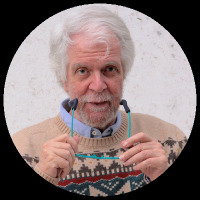Papers by Manuel Alector Ribeiro, PhD
Journal of Sustainable Tourism, Jul 3, 2023
Current Issues in Tourism, Apr 2, 2023
Current Issues in Tourism

Journal of Travel Research
This study develops and tests an integrative model of destination loyalty to tourist hotspot dest... more This study develops and tests an integrative model of destination loyalty to tourist hotspot destinations. The study highlights the role of perceived destination adaptation and psychological reactive behaviors in determining tourist satisfaction and loyalty. The model was tested using data collected from 582 respondents who had recently visited one of the “overcrowded” Mediterranean coastal tourism destinations. Findings suggest that perceived destination adaptation negatively influences tourist satisfaction and positively influences reactive behaviors of approach, avoidance, and tolerance. Approach and avoidance behaviors predict assessed crowding levels and tourist satisfaction. Tourists’ tolerance levels on assessed crowding was insignificant. Assessed crowding levels negatively affect tourist satisfaction and intentions to revisit and recommend the destination while positively influencing objections to revisit and recommend the destination. Concomitantly, overtourism awareness m...

Journal of Hospitality Marketing & Management, 2018
Using the cognition-affect-behavior response system, this study examines the effects of three dim... more Using the cognition-affect-behavior response system, this study examines the effects of three dimensions of perceived quality (service quality, food quality and restaurant atmospherics) and emotions on overall customer service experience in ethnic restaurants. The study builds on the gap in the literature with respect to the evaluation of perceived quality as a higher-order construct consisting of three dimensions. The baseline and two competing models are proposed and tested on a sample of 665 diners to Brazilian restaurants in the United Kingdom (UK). The findings revealed that all hypothesized relationships were statistically significant, except for the relationship between restaurant atmospherics and negative emotions. Only positive emotions mediated the effect of perceived quality on customer service experience. The findings have significant theoretical and managerial implications for service providers and encouraging diners to experience Brazilian restaurants in the UK.

This book provides a comprehensive and readable overview of the critical debates and controversie... more This book provides a comprehensive and readable overview of the critical debates and controversies around tourism in Africa, and the major factors that are affecting tourism development now and in the future. Drawing upon research emerging from collaborations between a growing number of African academics and practitioners based in the continent and in the African diaspora as well as international colleagues, the Handbook offers key critical insights into the issues, challenges and trends that Africa and African tourism is facing. Part I covers continent-wide issues such as climate change, ICT, heritage and development. The remaining parts are organised along geographic lines, with each chapter covering the development of tourism, current trends and discussion of critical issues such as community participation, gender, backpacking, urban tourism, wildlife tourism and conservation. Combining an overview of key theories, concepts, contemporary issues and debates, this book will be a valuable resource for students, academics and practitioners investigating the role of tourism in Africa.
Journal of Sustainable Tourism, 2022
Routledge Handbook of Tourism in Africa, 2020

Journal of Travel Research, 2020
Drawing on the theory of social distance, this study examined the extent to which residents’ atti... more Drawing on the theory of social distance, this study examined the extent to which residents’ attitudes concerning tourism can predict a sympathetic understanding of tourists. Results from residents within the rapidly emerging inbound tourism market, Japan ( n=1569), were analyzed. EFA was undertaken on both residents’ attitudes and social distance data. CFA was then undertaken to establish a measurement model, followed by SEM to examine model relationships. The SEM revealed that more negative attitudes concerning tourism were found to have the strongest impact on less sympathetic understanding of tourists and vice versa, revealing that residents’ attitudes toward tourists depend in part upon whether attitudes about tourism are positive or negative. This study expands residents’ attitude theory by exploring the outcomes of such attitudes, rather than focusing on antecedents. Practical implications are advanced concerning internal marketing strategies, such as disseminating the positi...

Journal of Tourism and Cultural Change, 2019
This study examined how Brazilian and Korean residents in two Japanese towns differed in their vi... more This study examined how Brazilian and Korean residents in two Japanese towns differed in their views of tourism in general and ethnic neighborhood tourism (ENT) focused on their own culture and if their perceptions of tourism in general translate into their corresponding attitudes about ENT. A series of MANOVAs revealed that Brazilian residents held more positive views toward tourism in general and ENT than their Korean counterparts. Although the two groups differed in their perception of community benefits from tourism in general, they demonstrated a similar mix of hopes and worries regarding ENT. Results from multiple regression analyses also revealed that minority residents' perceptions of tourism in general can be a significant predictor of their attitudes toward ENT explaining 4-40% of variance in the Brazilian sample and 4-12% in the Korean sample. These findings imply that perceptions of general tourism are precursors to perceptions of specific, niche forms of tourism. In a practical sense, this study underscores the importance of inviting residents' opinion into the tourism planning process, especially in ENT contexts. Implications and suggestions for future research are discussed at the close of the paper.

Tourism Management, 2018
The political ramifications of hosting mega-events are huge. In this article, we investigate the ... more The political ramifications of hosting mega-events are huge. In this article, we investigate the relationships among corruption, transparency, knowledge, and public trust using data collected from 3786 Brazilians in the context of the 2014 FIFA World Cup Games. Findings from the structural equation modeling indicate that public trust in government is determined by the respondents' perceptions of corruption and transparency and their level of knowledge about the roles of government and the local organizing committee in the mega-event. The respondents' level of trust in the local organizing committee also exerts an influence on their trust in the government. The implications of the findings for governments planning to host mega-events in the future are discussed. This research makes an important contribution to the literature, being the first study to test a theoretical model that analyses the relationships between corruption, transparency, knowledge, and public trust in the context of a mega-sport event.
Event Management, 2018
Mega-events and corruption are two major issues in modern society. Unfortunately, both sometimes ... more Mega-events and corruption are two major issues in modern society. Unfortunately, both sometimes go hand in hand. This study examined the effects of corruption perceptions on residents' impact perceptions and their support for hosting a mega-event in their community. Furthermore, this study investigated the influence of transparency on corruption, residents' impact perceptions, and their support for a mega-event by focusing on the 2014 FIFA World Cup held in Brazil. Findings indicated that corruption perceptions are critical determinants of residents' impact perceptions and their support for hosting a mega-event. Findings further suggested that transparency is an important determinant of residents' corruption perceptions, impact perceptions, and support for hosting a mega-event.
Tourism Management, 2018
Full bibliographic details must be given when referring to, or quoting from full items including ... more Full bibliographic details must be given when referring to, or quoting from full items including the author's name, the title of the work, publication details where relevant (place, publisher, date), pagination, and for theses or dissertations the awarding institution, the degree type awarded, and the date of the award.
International Journal of Tourism Research, 2017
This work examines emotional solidarity to determine to what extent residents' perceptions are he... more This work examines emotional solidarity to determine to what extent residents' perceptions are heterogeneous by considering a host of sociodemographic and socioeconomic variables. An onsite survey instrument was administered to 660 residents living in the popular Turkish tourism destination, Antalya. Psychometric results provide support for the employment of the Emotional Solidarity Scale and its factor structure in an international context. Significant differences in Emotional Solidarity Scale factor means were found across five variables (e.g., gender, age, education level, tourism employment status, and level of tourism dependence). Theoretical and practical implications are offered, as are the limitations and potential future research opportunities.











Uploads
Papers by Manuel Alector Ribeiro, PhD